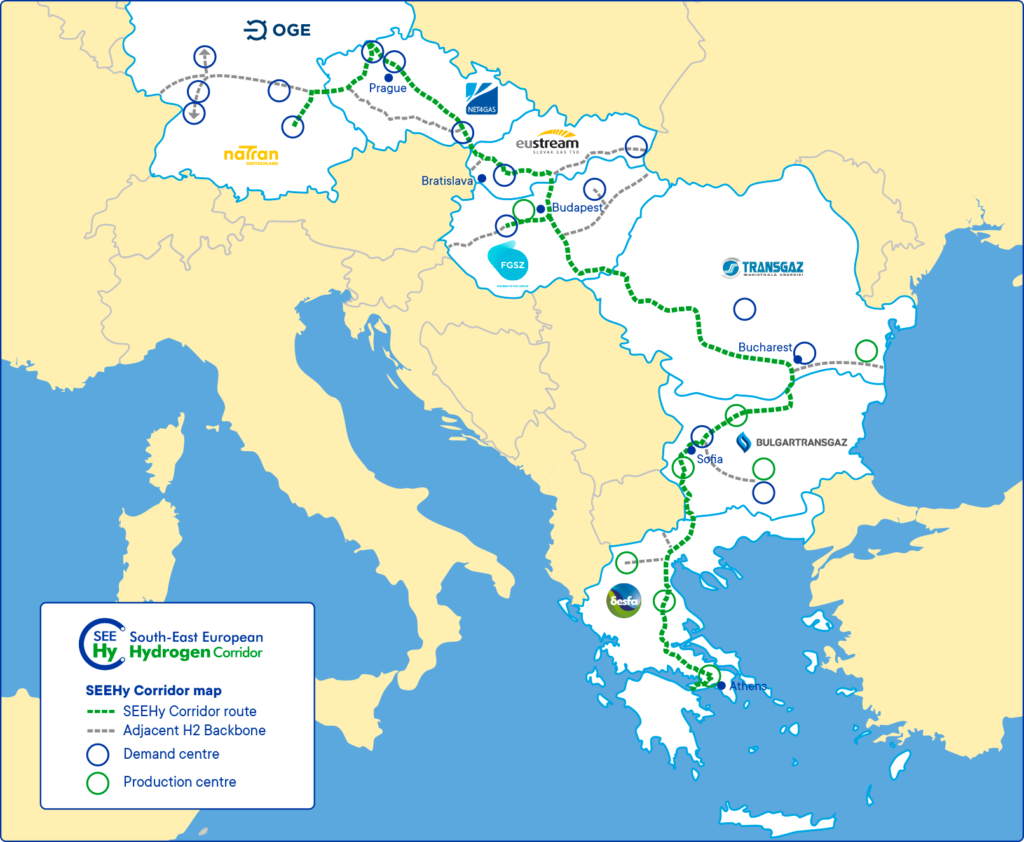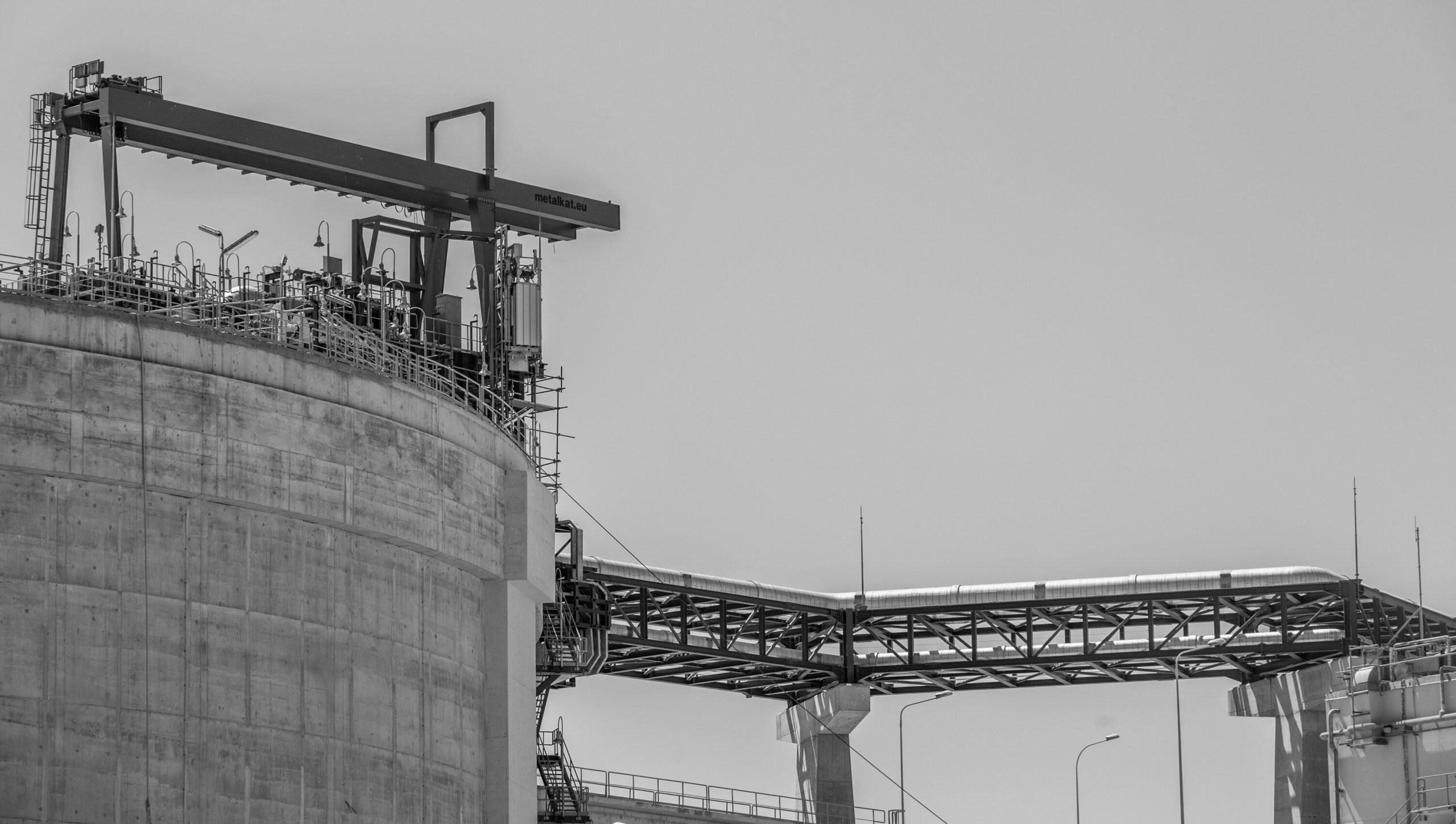
This project consists of a new hydrogen pipeline approximately 570 km long that will be constructed in parallel with the existing high-pressure gas pipeline. The purpose of the proposed infrastructure will be to connect hydrogen production units located in the Greek mainland with consumption points in Athens, Corinth and Thessaloniki industrial areas, where potential hydrogen consumers are expected to be located and subject to the relevant developments, with neighboring countries, namely Bulgaria and possibly North Macedonia in the future.
The project has already been selected in the 1st Projects of Common/Mutual Interest List of the European Commission and is envisaged to be interconnected with the corresponding hydrogen transmission infrastructure proposed by Bulgartransgaz, the Bulgarian Transmission System Operator (PCI 10.3.2 Internal hydrogen infrastructure in Bulgaria towards the Greece border).
The aforementioned pipeline is part of the Southeastern Corridor of the European Hydrogen Backbone and more specifically of the South Eastern European Hydrogen Corridor Initiative (SEEHyC – https://www.seehyc.eu/). The initiative is supported by 7 European TSOs (DESFA -Greece, Bulgartransgaz – Bulgaria, Transgaz – Romania, NET4GAS – Czech Republic, FGSZ – Hungary, EUSTREAM – Slovakia, OGE – Germany) and the corridor route will cover 2,854 km of repurposed gas and new hydrogen infrastructure, that will be able to initially transport 80 GWh/d from south to north.
DESFA’s participation to the initiative aims to strengthen Greece’s domestic hydrogen production capacity, as well as export activities to Central Europe. The establishment of hydrogen transmission infrastructure is the building block for the orderly operation and development of the internal European hydrogen market, as well as for imports. A well-designed and operational hydrogen transmission network fosters sustainable development and ensures equal access for both producers and consumers, guaranteeing the availability of hydrogen from diverse sources, thereby enhancing energy security, and promoting the optimal utilization of benefits stemming from direct and indirect emission reductions.
Given DESFA’s extensive experience in managing and developing networks at both national and regional levels, coupled with the initiatives it has undertaken in recent years, the company assumes a pivotal role in the advancement of infrastructure for the secure, efficient, and sustainable transmission of hydrogen.
For further information on DESFA’s hydrogen pipeline and the European Hydrogen Backbone, you can click on the link below: https://www.h2inframap.eu/#map













